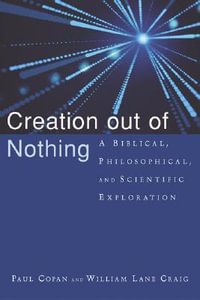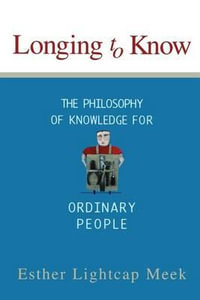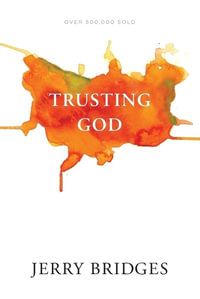In this careful and closely argued book, Terence Nichols presents a vigorous challenge to naturalistic thinking. We are offered the persuasive vision of a world of many-leveled richness, whose Creator is continually active within its unfolding history. --John Polkinghorne, University of Cambridge This is a uniquely valuable work for our time. The Sacred Cosmos takes on the ambitious task of a synthesis of the contributions of contemporary science, basic Thomistic philosophy of being and the human person, and basic themes of Christian theology on God, creation, and the relations between God and the world. The author, a theologian, brings to his task an amazing background and range of competence both in contemporary science and . . . Christian theology. . . . The most valuable part of the book is the author's powerful and cogent critique of the widely influencial 'scientific naturalism' of our day, which claims the only reliable way of knowing is that of modern science, and all that exists can be explained by the evolving interaction of material elements, leaving no place for anything of the spiritual order, like the human soul, moral values, or God. --W. Norris Clarke, S.J., Fordham University In this sensible and solid reply to scientific atheism (or 'naturalism'), Nichols charts the way for a new harmony between science and spirituality. I recommend it to anyone interested in the interaction of religion and science. --Alan Padgett, author of Science and the Study of God: A Mutuality Model for Theology and Science
Industry Reviews
""In this careful and closely argued book, Terence Nichols presents a vigorous challenge to naturalistic thinking. We are offered the persuasive vision of a world of many-leveled richness, whose Creator is continually active within its unfolding history.""
--John Polkinghorne, University of Cambridge
""This is a uniquely valuable work for our time. The Sacred Cosmos takes on the ambitious task of a synthesis of the contributions of contemporary science, basic Thomistic philosophy of being and the human person, and basic themes of Christian theology on God, creation, and the relations between God and the world. The author, a theologian, brings to his task an amazing background and range of competence both in contemporary science and . . . Christian theology. . . . The most valuable part of the book is the author's powerful and cogent critique of the widely influencial 'scientific naturalism' of our day, which claims the only reliable way of knowing is that of modern science, and all that exists can be explained by the evolving interaction of material elements, leaving no place for anything of the spiritual order, like the human soul, moral values, or God.""
--W. Norris Clarke, S.J., Fordham University
""In this sensible and solid reply to scientific atheism (or 'naturalism'), Nichols charts the way for a new harmony between science and spirituality. I recommend it to anyone interested in the interaction of religion and science.""
--Alan Padgett, author of Science and the Study of God: A Mutuality Model for Theology and Science
























